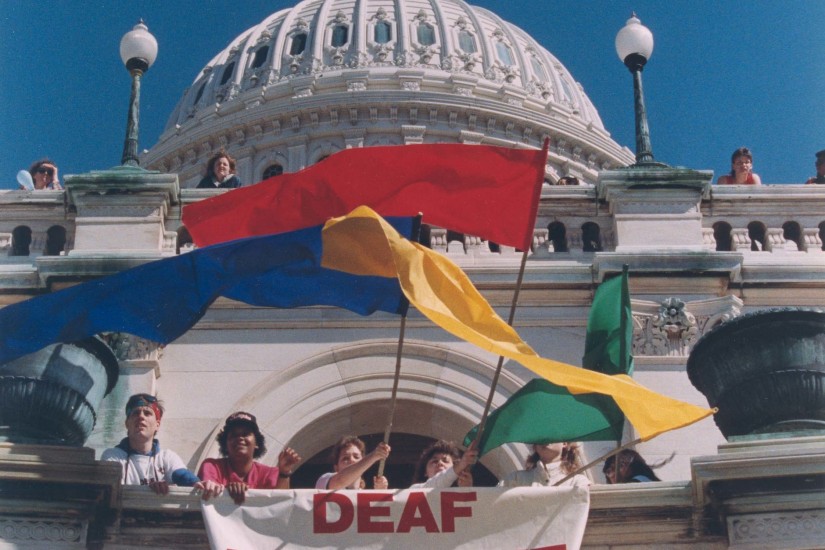It all started 30 years ago this March, when students at Gallaudet University, the only university in the world "designed to be barrier-free for deaf and hard-of-hearing students," seized control of their campus. They took up a collection, bought locks, and chained the gates to the campus shut. They marched. They campaigned. They refused to relent until the Board of Trustees granted their core demand: appoint a Deaf president to lead Gallaudet. A week after the protests began, the board of trustees appointed Dr. I. King Jordan as president. Jordan quickly became a global leader for deaf and disability rights. The power demonstrated by the Gallaudet students fueled efforts around Deaf rights for years to come (including later protests at Gallaudet), but also helped catalyze efforts to pass the Americans With Disabilities Act.
The lessons from Deaf President Now should be clear. Its success, fueled by direct action, shows that rights have to be claimed rather than given. Deaf President Now stands as a watershed moment in the history not just of Deaf and disability rights, but also of American civil rights more broadly. As I spoke to people who had been instrumental in the protests, and the current president of Gallaudet, I heard one additional message: a fear that too few Americans even remember this story.
